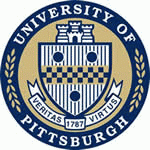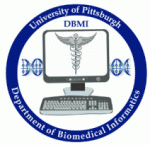Program is in EST. Program subject to change without notice.
| START TIME |
END TIME |
SESSION TYPE |
| 12:00 PM | 12:15 PM | Welcome |
| 12:15 PM | 1:15 PM | Keynote - Dr. Michael Snyder |
| 1:15 PM | 1:30 PM | Stretch Break |
| 1:30 PM | 2:30 PM | Workshop - Introduction to Python |
| 2:30 PM | 3:30 PM | Workshop - Machine Learning with Python |
| 3:30 PM | 3:45 PM | Stretch Break |
| 3:45 PM | 4:00 PM | Student Challenge Winner Showcase and Closing Remarks |
 Michael Snyder
Michael Snyder
Stanford Medicine
USA
Dr. Michael Snyder is the Stanford W. Ascherman Professor and Chair of the Genetics Department at Stanford Medicine. He was recruited by Stanford in 2009 to chair the Genetics Department and direct the Center for Genomics and Personalized Medicine. Under his leadership U.S. News & World Report has ranked Stanford University first in Genetics, Genomics, and Bioinformatics every year for the past decade.
As the leading pioneer of 21st century healthcare, Dr. Snyder invented and significantly advanced many industry-standard approaches to personalized medicine. Most recently his research involving longitudinal baseline profiling and state-of-the-art “omic” technologies research has greatly accelerated the advancement of precision medicine.
As an entrepreneur, Dr. Snyder’s co-founded companies have collectively raised $242 million in venture capital and are worth more than $6 billion in value. Dr. Snyder also serves on the board for a number of other companies.
Introduction to Python
Python is a versatile language commonly used for computational biology. This workshop will provide an overview of a lot of common functionality in Python with no previous experience required. We will also discuss some common libraries. Participants will also have an opportunity to test their skills on some simple programming problems before moving on to some more advanced topics. We will cover basic programming concepts such as variables, functions, loops, and booleans as preparation for forming a basic understanding of machine learning concepts implemented in Python.
Organizer: Ria Talwar
Machine Learning with Python
Machine learning has applications in many fields, including computational biology. Within this field, ML is often used in assisting in diagnosing and treating patients. It also has been applied to drug development. There are many types of machine learning models, but they can all be classified into unsupervised and supervised. For this, we will focus on supervised models. Supervised Models are ones that predict an output value(s) from inputs. Within supervised models, there are many different. types of models, such as logistic regression and neural networks.
Organizer: Ekansh Mittal
The purpose of the Student Challenge is to allow middle and high school students to think creatively, conduct background research, and develop a proposal for a unique solution that can help address important problems that face the medical field. Through this process, students will be able to think like scientists and learn how to make existing technologies even better.
The YBS 2023 Student Challenge winner has been selected! Congratulations to Arunraj Jeyaprakash with your submission Autism Detection Using Machine Learning and Eye Scanpath Biomarker through Mobile Camera Imaging.
Access Student Challenge Submissions
Theme
The theme for the Student Challenge this year is Advancing equity in medicine through computational biology. From rare to common diseases, many health burdens fall on underrepresented communities within the United States and internationally. Many innovations in computational biology, from methods to analyses, seek to advance equity for the future of medicine. How does your computational biology project assist in addressing these disparities?
We want students to have room to explore their own interests and see how computational and engineering methods can be applied to the topic.
We have several mentors available to assist you. If you want someone to review your project, please email This email address is being protected from spambots. You need JavaScript enabled to view it. and provide your need and your topic specifics and we will match you up with a mentor.
Before the Symposium
Students should brainstorm and think of ideas within the scope of the topic Advancing equity in medicine through computational biology. All attendees interested in participating in the Student Challenge will add the title and abstract for their project during the registration process. Attendees will have the opportunity to edit their registration to add their project information if they decide to participate after they have registered to attend. All projects need to be in the registration system by November 27th. All participants in the Student Challenge will receive an additional email with information on where and how to submit their project. All projects must be uploaded by December 4th.
During the Symposium
At the symposium, there will be scheduled time within the program when each participant in the Student Challenge will answer questions about their work with the various attendees at the symposium (family and friends) and will also present their work to the judges. The judges will score and determine the top projects, who will receive an award during the closing ceremonies.
Project Details
Before the symposium all participants in the Student Challenge MUST upload their project. Your submission should be between 3-5 minutes and consist of voice over slides or a video. All Student Challenge submissions will be available for on-demand viewing 48 hours before the symposium.
- Save your presentation as an MP4 file with the first name, last name, and project title.
- Slides should be widescreen16x9 ratio which export best to 1080p videos.
Some helpful tips on planning your recorded talk are available at these links:
Presenting your poster in a lighting style format using the PechaKucha or Ignite talks presentation style or a single slide or PDF is an option for presenters.
Here is a example of a presentation: https://youtu.be/rbLbb7eOao8
All projects must be uploaded by Monday, December 4, 2023.
At the Student Challenge, individuals will be assigned a virtual table and be available to answer questions about their project.
Judging Criteria
| I. Research Question (15 pts) | |
| clear and focused purpose | |
| identifies contribution to field of study | |
| testable using scientific methods | |
| II. Design and Methodology (10 pts) | |
| well designed plan and data collection methods | |
| III. Creativity (15 pts) | |
| project demonstrates significant creativity in one or more of the above criteria | |
| IV. Presentation (20 pts) | |
| clear, concise, thoughtful responses to questions | |
| understanding of basic science relevant to project | |
| recognize the potential impact on social and ethical issues | |
| quality of ideas for further research | |
| Total Points Possible: 60 | |






